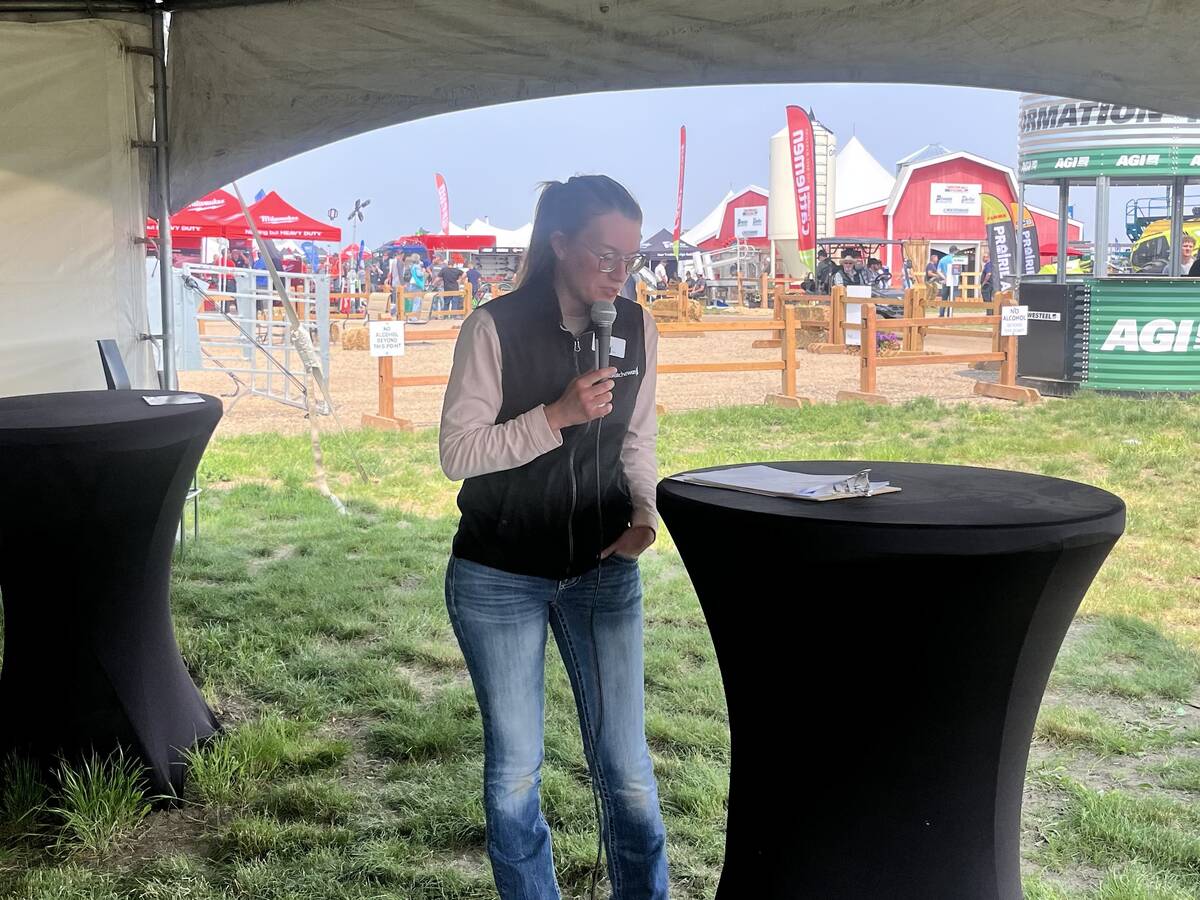Mayo Schmidt played wide receiver for a brief stint with the Miami Dolphins of the National Football League but it is his role as quarterback of Canada’s largest grain company that has people talking.
Analysts generally agree that Schmidt, Viterra’s chief executive officer, has executed a masterful game plan with foresight and precision but the impressive drive down the field has resulted in some bumps and bruises for teammates, opponents and owners.
At one point Saskatchewan Wheat Pool’s shares were worth $24.50. A few years after Schmidt gained control of the company they hit a low of 17.5 cents. Since bottoming out in 2003, SWP has transformed into Viterra, a company with new shareholders and a strong balance sheet.
Read Also

Ag in Motion speaker highlights need for biosecurity on cattle operations
Ag in Motion highlights need for biosecurity on cattle farms. Government of Saskatchewan provides checklist on what you can do to make your cattle operation more biosecure.
But the path back to profitability was not without its casualties.
“Somebody paid the price along the way and it was those previous shareholders,” said Anil Passi, Viterra analyst with Dominion Bond Rating Service.
Brian Hayward, former chief executive officer of Agricore United, said there was “massive dilution” of shareholder value during the Pool’s 2003 reorganization.
Holders of SWP Class B shares received one common share for every 20 Class B shares they held before the recapitalization.
“Anybody that owned shares at the time of the initial offering has received or retained very, very little value,” he said.
Paul Beingessner, a farmer from Truax, Sask., and former Pool delegate, sold his shares in protest shortly after the Pool went public in 1996. He was a supporter of the original co-operative business structure.
It turned out to be a good move considering what transpired during the 2003 restructuring. Escalating administration fees were destroying the value of his shares anyway.
“I honestly think it was Saskatchewan Wheat Pool’s way of getting rid of a whole bunch of small investors that they didn’t want. That was the distinct impression I got.”
Schmidt acknowledged the original shares were largely worthless after the restructuring. However, he blamed it on issues beyond his control, such as decisions made before he arrived and two years of drought after he showed up.
Had the Pool gone under, the situation would have been worse for its original farmer owners and their communities because 4,000 employees would have been out of work.
“The assets would have been in the hands of many, many different organizations and we would not have been able to achieve the efficiencies and the outcomes we achieved today,” he said.
University of Saskatchewan agricultural economist Murray Fulton said the original shareholders are not the only ones banged up during the Pool’s turbulent transition into Viterra.
“It’s a meaner, tougher organization,” he said.
That is largely a reflection of Schmidt, a no-nonsense chief executive officer, who considers himself a clear-thinker with a calm hand. Office staff call him the quarterback of the company, a reference to his NFL days.
But Schmidt also possesses the edginess of a middle linebacker. He demonstrated that take-no-prisoner attitude in the shedding of assets and employees, the takeover of Agricore United and in the hard-line approach he took during recent collective bargaining negotiations with head office staff and elevator workers, who eventually agreed to accept a performance-based pay system.
“It will be interesting to see how long that persona can be effective,” Fulton said.
Schmidt said it is more fun managing the company through the current growth phase than it was in the downsizing phase but that was a necessary evil. The restructuring has resulted in a reinvigorated workforce determined to transform a good company into a great one.
“We have established a culture of excellence. People believe in themselves. They believe in what this organization can do. They come to work energized.”
He said employees are a united group.
“We have thousands of people pulling together to achieve the same objective.”
Hugh Wagner, general secretary of the Grain Services Union representing Viterra workers, said the union made concessions in agreeing to performance-based raises but achieved some balance by introducing an appeals process to accompany the new pay system.
All things considered, he figures Viterra employees are better off than they would have been if Schmidt and his team hadn’t rescued the company from what looked to be certain death in 2003.
“It was very serious. We were concerned. In fact, so concerned that we voluntarily backed off on bargaining pending their efforts to sort out their finances.”
Wagner is pleased to hear that Viterra’s quarterback is looking to take his game on the road by expanding the company internationally.
“Obviously we wish them well in that regard because the company’s prosperity should translate into greater job security and improved prospects for the workforce,” he said.

















